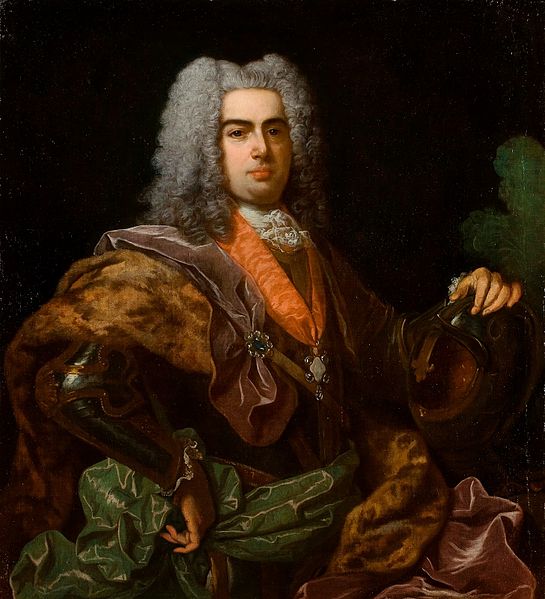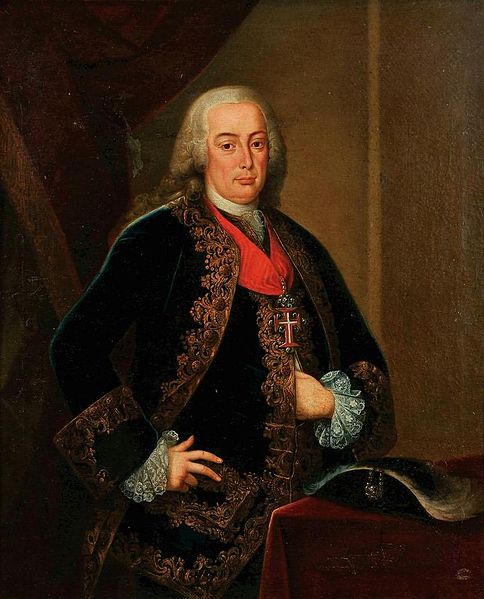History of Portugal (1640–1777)
From the House of Braganza restoration in 1640 until the end of the reign of the Marquis of Pombal in 1777, the Kingdom of Portugal was in a transition period.
Having been near its height at the start of the Iberian Union, the Portuguese Empire continued to enjoy the widespread influence in the world during this period that had characterized the period of the Discoveries. By the end of this period, however, the fortunes of Portugal and its empire had declined, culminating with the Távora affair, the catastrophic 1755 Lisbon earthquake, and the accession of Maria I, the first ruling Queen of Portugal.
A monument honouring the "restorers" in Lisbon, in the plaza with the same name
Afonso VI, second King of the House of Braganza.
John V of Portugal.
Sebastião José de Carvalho e Melo, Marquis of Pombal, Prime Minister of Portugal
Sebastião José de Carvalho e Melo, 1st Marquis of Pombal
D. Sebastião José de Carvalho e Melo, 1st Marquis of Pombal and 1st Count of Oeiras, known as the Marquis of Pombal, was a Portuguese despotic statesman and diplomat who effectively ruled the Portuguese Empire from 1750 to 1777 as chief minister to King Joseph I. A strong promoter of the absolute power and influenced by the Age of Enlightenment, Pombal led Portugal's recovery from the 1755 Lisbon earthquake and reformed the kingdom's administrative, economic, and ecclesiastical institutions. During his lengthy ministerial career, Pombal accumulated and exercised autocratic power. His cruel persecution of the Portuguese lower classes led him to be known as Nero of Trafaria, a village he ordered to be burned with all its inhabitants inside, after refusing to follow his orders.
Sebastião José de Carvalho e Melo, 1st Marquis of Pombal
The Marquis and his brothers, one the Grand Inquisitor and the other Governor-General of Grão-Pará.
Eleonora Ernestina von Daun, the Marquis of Pombal's second wife.
Portrait of the 1st Marquis of Pombal; Joana do Salitre, 1770.








